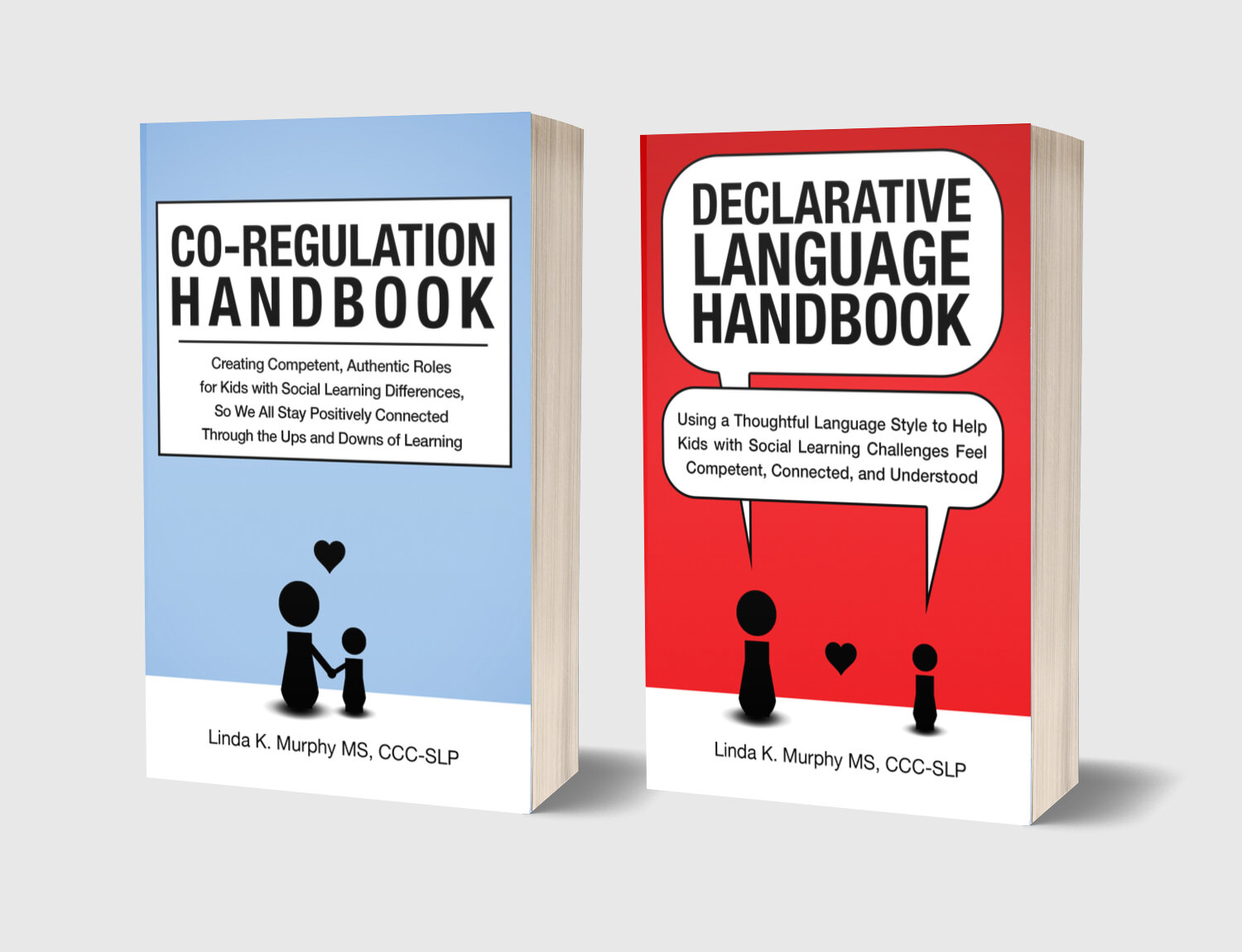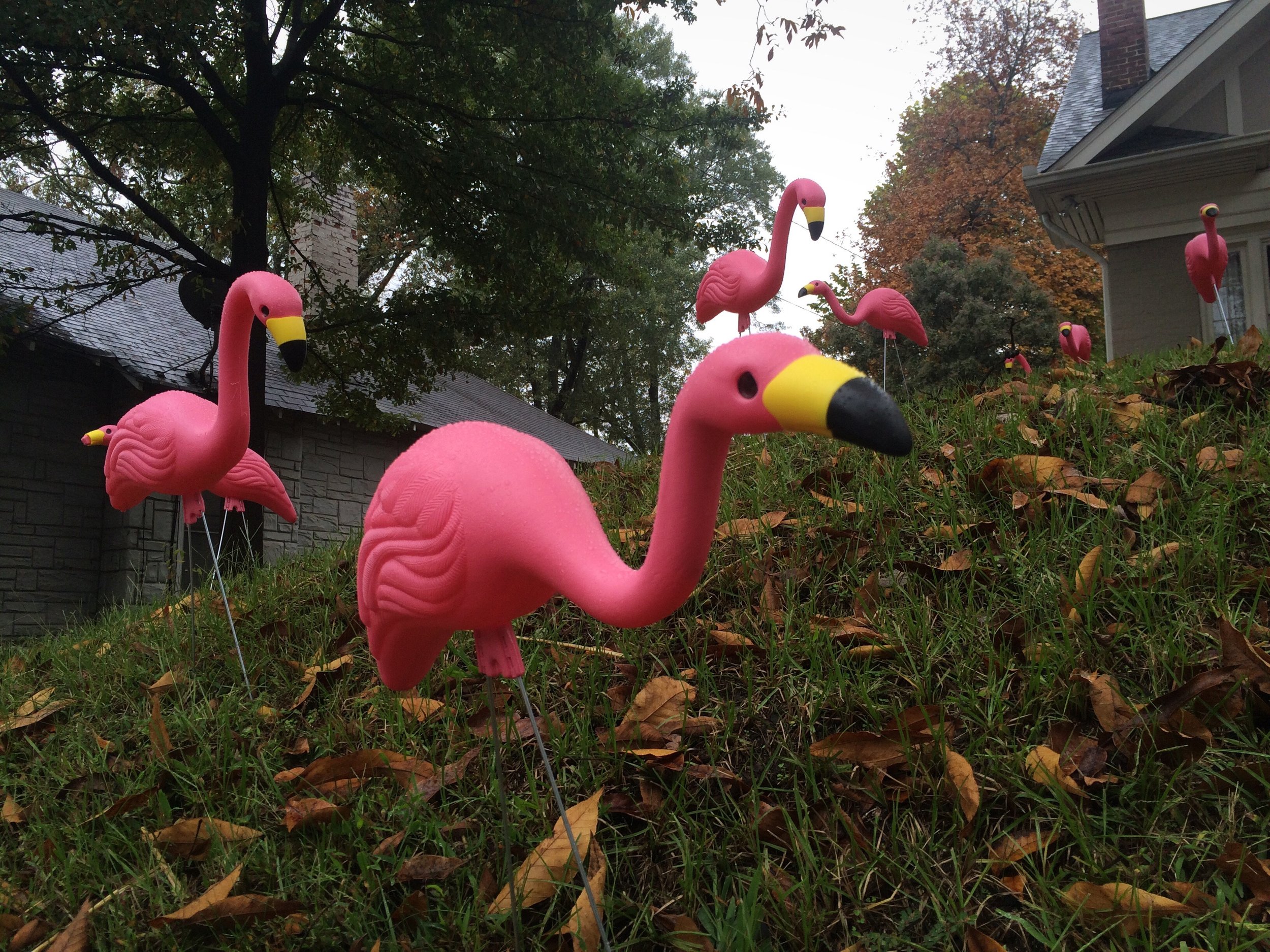Flamingos!
Now that spring is approaching, it’s time for one of my favorite posts about one of my favorite topics: Productive Uncertainty. Thank you to a special follower for the request, and I love that I can say it is back by “popular demand”!
I originally wrote this in April 2021, and reposted in April 2022 with a few small edits. I am doing the same again now, because - although it is largely the same - I continue to learn and grow each year, and want to always update my writing accordingly.
Happy Spring!
There is a house near mine that has several plastic pink flamingos in their front yard. The owners creatively position, dress up and reposition the flamingos periodically in entertaining ways. For example, last summer I remember seeing them dressed for a tropical summer party, in the fall, they were ready for football season, and just yesterday, they were all up in a tree. I love the anticipation as I approach their yard, wondering what these flamingos will be doing next. And I always feel happy, amused, and appreciative of each new discovery. I'm sure I am not the only one who is invested in these birds!
It hit me yesterday that this flamingo routine is a fantastic example of 𝐩𝐫𝐨𝐝𝐮𝐜𝐭𝐢𝐯𝐞 𝐮𝐧𝐜𝐞𝐫𝐭𝐚𝐢𝐧𝐭𝐲, an important concept that I have learned about through Relationship Development Intervention® (RDI).
Let me explain. The flamingos’ owners have created a baseline pattern, and over time, have quietly welcomed passersby to become familiar with it: There are always flamingos in the front yard. They hang out in an entertaining scene for a period of time. Then, one day, the flamingos are doing something new and different! We are surprised and delighted all over again.
The novelty and uncertainty of this routine has become fun - and I would argue - one of its most important elements! As I approach the house, I think to myself, “Will they be in the same place? Will they be doing something different?” and “I can’t wait to see the next flamingo scene!”
Productive uncertainty is the spot where we feel competent because we are doing something that is familiar to us…
…yet also excited because there has been a small change.
When a new element is added to a familiar routine, we may at first feel uncertain around how we will manage it.
Yet, we are not threatened or scared.
We know we can handle it because it is embedded within a pattern we recognize.
And, as with the flamingos, we come to enjoy those moments of anticipation when we don’t yet know what will happen next.
Now, let’s think about when there is too much uncertainty. This is perceived as chaos. When we can’t recognize a pattern that we know within a novel situation, we likely feel scared, overwhelmed and not competent.
We may even go into fight, flight or freeze.
Can you think of a time that you or maybe your learner has experienced this feeling because the novelty of a situation was too great?
In contrast to too much uncertainty, is too little uncertainty. When patterns remain the same, without any changes over time, growth cannot occur. For example, if the flamingos never moved, I would probably stop noticing them all together.
It would become uninteresting and there would be no additional opportunities for mental engagement.
We all need to experience productive uncertainty to grow and stretch ourselves in new ways. In Chapter 7 of Co-Regulation Handbook, I discuss the term edge of competence.
This idea, first expressed by Lev Vygotsky, means there is challenge at that just right level -- not too easy, not too hard.
When a challenge is at an individual’s edge of competence, they feel confident enough to engage in the learning opportunity AND there is an element that is not yet known. We all grow and learn as we tackle the part that is less familiar, or uncertain.
As teachers and guides, it is our job to create learning opportunities at this place for our learners.
If we bring it back to my favorite flamingos, the learning opportunity at hand might be the internal predictions I make using my world knowledge and episodic memory: “What season is it? Any holidays coming up? Where have they been so far and what have they already done?” Based on this information, I can imagine possibilities of what they might be doing next. I have created my own learning challenge, but the pattern of familiarity and competence needed to come first.
Throughout Co-Regulation Handbook, I discuss the idea of “competent roles” - i.e., what this means exactly, and how to go about establishing them.
We must first help our learners experience authentic competence, so they are ready and willing to engage in challenges at their “edge”.
Productive uncertainty is a critical element in this process, and one that can be so fun, once you start to consider it!
Like this article?
You can download it all on one page here!
Have a great week!
4-Week Group Coaching Workshop
Want to practice using declarative language & creating competent roles? Join us Tuesday evenings in May!
All levels are welcome to join. Whether these concepts are familiar to you and you simply want more guided practice, or you are just getting started, we look forward to supporting you!
Details are here.
Sunday Snippets of Support
If you like them, you can receive them directly to your inbox here!















